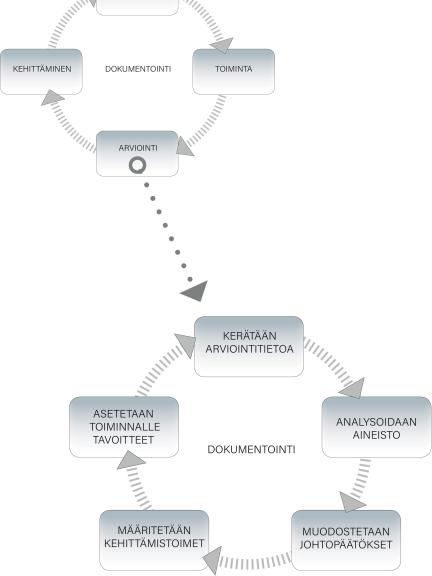Evaluation and quality of early childhood education and care and pre-primary education
The child has the right to receive early childhood education and care and pre-primary education of high quality
Equal and equitable early childhood education and care and pre-primary education are implemented as defined in the early childhood education and care plan of Tampere and the curriculum for pre-primary education of Tampere. Operating in accordance with this plan and curriculum ensures that every child can use their right to receive early childhood education and care and pre-primary education that are of even quality, no matter what their place of residence is.
The quality of the early childhood education and care and pre-primary education provision by the City of Tampere is evaluated following the principles of school evaluations for development and improvement. The key objective is to implement child-oriented and customer-oriented care, education and teaching and to ensure well-functioning services and their further development.
Once a year, the parents and early childhood education and care workers hold an early childhood education plan discussion (“vasu”) concerning each child in order to examine the goals set for the activities concerned.

Image credit: Grounds and recommendations for the quality and evaluation of early childhood education and care, KARVI (2018).
“Evaluation is a process.
The most important thing is not the outcome but the observations made along the way.”
Evaluation is an integral part of quality
Educational activities and their effectiveness are measured through an evaluation to identify their strengths and development needs. The children, their parents and the staff all participate in the evaluation of the quality of early childhood education and care and pre-primary education.
Such evaluation focuses primarily on the child’s early childhood education and care environment, the pedagogical activities of the staff, the operating culture, and the prerequisites for learning, development and well-being which they all have created together.
High-quality early childhood education and care and high-quality pre-primary education encompass sensitive interaction, children’s interests, building learning environments together with the children, a caring approach, and enabling play and learning.
City of Tampere early childhood education and care plan
City of Tampere curriculum for pre-primary education
Collecting evaluation data
Discussions between the guardian and the staff regarding the child’s day in care are part of the evaluation, and they form the basis for safeguarding the child’s overall well-being. In addition to the early childhood education plan discussion (“vasu”) on each child and the evaluation work done in the unit concerned, surveys on customer satisfaction and service capability are also performed.
A customer satisfaction survey is conducted in early childhood education and care every two years and in pre-primary education once a year. It enables the parents to assess the early childhood education provision and the service capability.
The availability and service capability of early childhood education and care provision are assessed by the parents of children who have started to attend early childhood education and care, through a service capability survey annually in spring and autumn.